第14章 CHAPTER III BOARDING-SCHOOL IDEALS(3)
The only moments in which I seem to have approximated in my own experience to a faint realization of the "beauty of holiness," as I conceived it, was each Sunday morning between the hours of nine and ten, when I went into the exquisitely neat room of the teacher of Greek and read with her from a Greek testament. We did this every Sunday morning for two years. It was not exactly a lesson, for I never prepared for it, and while I was held within reasonable bounds of syntax, I was allowed much more freedom in translation than was permitted the next morning when I read Homer; neither did we discuss doctrines, for although it was with this same teacher that in our junior year we studied Paul's Epistle to the Hebrews, committing all of it to memory and analyzing and reducing it to doctrines within an inch of our lives, we never allowed an echo of this exercise to appear at these blessed Sunday morning readings. It was as if the disputations of Paul had not yet been, for we always read from the Gospels. The regime of Rockford Seminary was still very simple in the 70's. Each student made her own fire and kept her own room in order. Sunday morning was a great clearing up day, and the sense of having made immaculate my own immediate surroundings, the consciousness of clean linen, said to be close to the consciousness of a clean conscience, always mingles in my mind with these early readings. I certainly bore away with me a lifelong enthusiasm for reading the Gospels in bulk, a whole one at a time, and an insurmountable distaste for having them cut up into chapter and verse, or for hearing the incidents in that wonderful Life thus referred to as if it were merely a record.
My copy of the Greek testament had been presented to me by the brother of our Greek teacher, Professor Blaisdell of Beloit College, a true scholar in "Christian Ethics," as his department was called. I recall that one day in the summer after I left college--one of the black days which followed the death of my father--this kindly scholar came to see me in order to bring such comfort as he might and to inquire how far I had found solace in the little book he had given me so long before. When I suddenly recall the village in which I was born, its steeples and roofs look as they did that day from the hilltop where we talked together, the familiar details smoothed out and merging, as it were, into that wide conception of the universe, which for the moment swallowed up my personal grief or at least assuaged it with a realization that it was but a drop in that "torrent of sorrow and aguish and terror which flows under all the footsteps of man."
This realization of sorrow as the common lot, of death as the universal experience, was the first comfort which my bruised spirit had received. In reply to my impatience with the Christian doctrine of "resignation," that it implied that you thought of your sorrow only in its effect upon you and were disloyal to the affection itself, I remember how quietly the Christian scholar changed his phraseology, saying that sometimes consolation came to us better in the words of Plato, and, as nearly as I can remember, that was the first time I had ever heard Plato's sonorous argument for the permanence of the excellent.
When Professor Blaisdell returned to his college, he left in my hands a small copy of "The Crito." The Greek was too hard for me, and I was speedily driven to Jowett's translation. That old-fashioned habit of presenting favorite books to eager young people, although it degenerated into the absurdity of "friendship's offerings," had much to be said for it, when it indicated the wellsprings of literature from which the donor himself had drawn waters of healing and inspiration.
Throughout our school years, we were always keenly conscious of the growing development of Rockford Seminary into a college. The opportunity for our Alma Mater to take her place in the new movement of full college education for women filled us with enthusiasm, and it became a driving ambition with the undergraduates to share in this new and glorious undertaking. We gravely decided that it was important that some of the students should be ready to receive the bachelor's degree the very first moment that the charter of the school should secure the right to confer it. Two of us, therefore, took a course in mathematics, advanced beyond anything previously given in the school, from one of those early young women working for a Ph.D., who was temporarily teaching in Rockford that she might study more mathematics in Leipsic.
My companion in all these arduous labors has since accomplished more than any of us in the effort to procure the franchise for women, for even then we all took for granted the righteousness of that cause into which I at least had merely followed my father's conviction. In the old-fashioned spirit of that cause I might cite the career of this companion as an illustration of the efficacy of higher mathematics for women, for she possesses singular ability to convince even the densest legislators of their legal right to define their own electorate, even when they quote against her the dustiest of state constitutions or city charters.